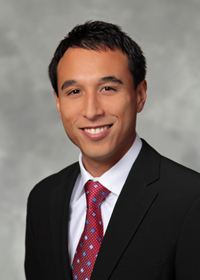
Kashi Yoshikawa
By Kashi Yoshikawa
Investment Strategist, Wells Fargo Private Bank
It wasn’t surprising to learn that although many Seattle-area adults believe they are in good shape on immediate financial needs (paying bills, providing for family, etc.), they tend to be less “healthy” on more long-term goals, according to a survey released by Wells Fargo’s Wealth, Brokerage, and Retirement Group.
Seven out of 10 Seattleites (71%) report that living within their means relieves their worry about money (significantly higher than 58% of adults nationwide). However, far fewer say they are in ‘good or great’ enough financial shape to be able to retire comfortably (40%) or have adequate “rainy day” savings set aside for emergencies (49%). In addition, nearly half (45%) are worried about their financial future (similar to 50% nationally).
What does this mean?
Basically, we may not have the long-term outlook needed to back up a truly healthy financial future.
Even though the survey found that a slight majority of area residents (52%) describe their household’s overall financial health as either “good” or “great” (vs. 44% of all U.S. households), the study also found that nearly half (49%) of Seattleites report having no type of detailed investment or financial plan, or even a budget to help manage their spending (similar to 42% nationwide).
The good news is that majority of surveyed Seattleites (58%) recognize that they would benefit from a professional financial or investment adviser, far more than the national response (49%).
It may seem a long way off and far removed from day-to-day concerns, but now is actually the best time to start planning and saving—no matter your age. There are several easy ways to get started. Consider these steps:
Write down your retirement goals. Jot down your best guesses for the age you want to retire, where, and what you plan to do in retirement. You’ll change those goals along the way, but you need to start somewhere. If you’re married or have a partner, be sure you both do this exercise and compare notes.
Take advantage of any retirement savings plan your employer offers. Many employers offer a match – if you don’t contribute, you are essentially leaving free money on the table. 401(k), 403(b), or 457 plans are designed to be simple and convenient. The money is automatically withdrawn from your paycheck, allowing you to save, not spend.
Live within your means. The less you owe to lenders and credit card issuers, the more you’ll have to save for retirement. Try to avoid overcharging.
Work with a financial professional. A financial professional can help you plot a strategy and take advantage of the best ways to save for retirement.
Between your monthly budget, retirement savings, and investments, keeping close tabs on your personal finances may seem like a full-time job. But it doesn’t have to be. Take advantage of the tools and resources available to you so that you can learn how to make the right retirement choices for your future self.
About the study
These survey findings are based on an online survey conducted from Nov. 13 through Dec. 4, 2013 among adults nationwide (N=1,004) and in the Seattle area (n=301 in King, Snohomish, and Pierce counties). Qualified respondents were non-students, ages 25 to 75, who are the primary or joint financial decision-maker in the household with household investable assets of at least $10,000.
Survey results are weighted to reflect Census data for gender, age, race/ethnicity, region, and household income to ensure representativeness. Assuming no sample bias, the maximum margin of error for the national sample is ± 3.1% and ± 5.6% for the Seattle area sample. (end)



